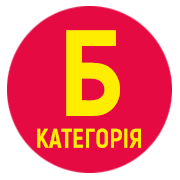THE USE OF DIGITAL TECHNOLOGIES IN THE LESSON OF PHYSICAL CULTURE IN THE CONDITIONS OF THE NEW UKRAINIAN SCHOOL
DOI:
https://doi.org/10.32782/olimpspu/2025.1.4Keywords:
digital technologies, physical culture, New Ukrainian School, mobile applications, virtual reality, fitness braceletsAbstract
The article considers the use and implementation of digital technologies in the educational process in physical education lessons in the conditions of the New Ukrainian School (NUS). Changing educational standards and current trends in the digitalization of learning require the search for new approaches to organizing lessons aimed at increasing student motivation, improving the quality of learning and monitoring physical activity.An analysis of the scientific literature on the study of effective digital technologies determined that to improve the quality of physical education lessons, mobile applications for tracking physical activity (for example, google fit, myfitnesspal, adidas running) can be used, allowing students to control the number of steps taken, calories consumed and the level of physical activity. Fitness bracelets and smart-watches that provide individual control of the heart rate of students. Interactive platforms and video tutorials (youtube, fiton, nike training club) that help to diversify the learning process, demonstrating the correct technique of exercise. Virtual and augmented reality, which allow you to conduct interactive classes and simulate a physical culture lesson. Online physical activity diaries that help the teacher effectively assess the performance of students and analyze their physical fitness.The study confirms that the use of digital technologies in physical education lessons contributes to increasing the interest of schoolchildren in physical activity, individualizing the educational process and forming a healthy lifestyle. The integration of such technologies provides new opportunities for assessing and correcting the physical, technical, tactical skills of students, as well as for organizing distance learning. The integration of these innovations is consistent with the conceptual principles of the New Ukrainian School, aimed at the formation of a comprehensively developed personality with a high level of physical development.However, achieving the maximum effect is possible provided that the teacher owns information and interactive technologies in the educational process, as well as ensuring the proper level of material and technical base.
References
Кожедуб Т.Г. Інноваційна технологія теоретичної підготовки у фізичному вихованні учнів середньої школи: автореф. дис. кан. наук з фіз. вих.: 24.00.02. Дніпропетровськ, 2014. 21 с.
Москаленко Н.В, Власюк О.О., Степанова І.В., Шиян О.В. Інноваційні технології у фізичному вихованні школярів: навч. посіб. Дніпропетровськ: Інновація, 2011. 238 с.
Москаленко Н.В. Теоретико-методичні засади інноваційних технологій в системі фізичного виховання молодших школярів: автореф. дис. кан. наук з фіз. вих.: 24.00.02. Київ, 2009. 42 с.
Нестеров А.В., Артеменко В.В., Мілаєв О.І. Сучасний стан готовності вчителів фізичної культури до використання фізкультурно-оздоровчих технологій у професійній діяльності. Вісник Запорізького національного університету: Збірник наук.-практ. конференції. Запоріжжя, 2016. С. 38–46.
Носко М.О., Гаркуша С.В., Воєділова О.М., Разумейко Н.С., Багінська О.В. Формування готовності майбутніх учителів фізичної культури до використання здоров’язбережувальних технологій. Вісник Чернігів. нац. пед. ун-ту. Зб. наук. пр. Чернігів, 2018. С. 88–93.
Кібальник О.Я. Застосування фітнес-технології для підвищення рухової активності та фізичної підготовленості підлітків: автореф. дис. кан. наук з фіз. вих.: 24.00.02. Львів, 2008. 20 с.
Павлова Ю.О. Теоретико-методичні засади забезпечення якості життя різних груп населення з використанням оздоровчо-рекреаційних технологій: автореф. дис. кан. наук з фіз. вих.: 24.00.02. Львів, 2016. 40 с.
Качан О.А., Пристинський В.М. Інформаційно-комунікаційні та рухливо-пізнавальні технології у фізичному вихованні дітей і підлітків: навч.-метод. посіб. Слов’янськ : вид-во Б.А. Маторіна, 2018. 260 с.
Качан О.А., Пристинський В.М. Концепція «Спорт заради розвитку» у фізкультурно-оздоровчій і спортивно-масовій роботі закладів загальної середньої освіти: монографія. Слов’янськ: вид-во Б. І. Маторіна, 2022. 162 с.
Скалій О. В. Комп’ютерні технології диференціації процесу фізичного виховання школярів (на прикладі навчання плавання): автореф. дис. ... канд. наук з фіз. виховання і спорту: 24.00.02. Львів, 2002. 24 с.
Рибалко П.М. Особливості професійної підготовки майбутніх учителів фізичної культури до подальшої фахової діяльності. Педагогічні науки: теорія, історія, інноваційні технології. Суми, 2019. С. 35–44.







